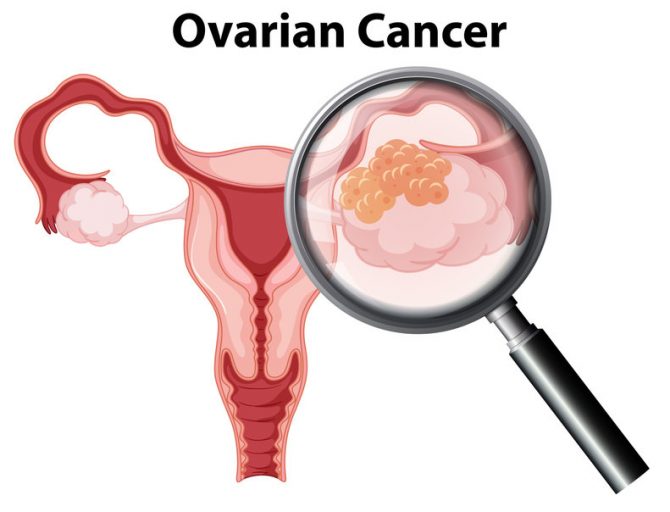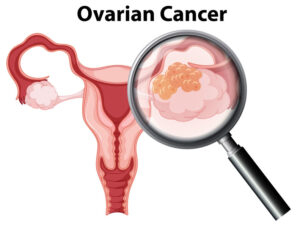Ovarian cancer is one of those topics that inevitably come up a few times a week during a routine, annual exam.
Whether it is a woman with a family history, or vague symptoms such as feeling full all the time, bloating, a history of ovarian cysts, or just wanting to make sure that everything is “ok” down there, ovarian cancer is something that women worry about. And with good reason.
The fifth cause of cancer-related deaths in women is ovarian cancer making it one of the most common types of cancer affecting women.
In the female reproductive system, the ovaries can be found on both sides of the uterus and are the size of an almond.
The ovaries are responsible for producing eggs, or ova, and female hormones – estrogen and progesterone.
Ovarian cancer can spread outside of the pelvis to other areas of the body.
The American cancer society (ACS) estimates that in 2021, 21,410 will receive a new diagnosis for ovarian cancer, while 13,770 will die from ovarian cancer.
Early detection of ovarian cancer is key to successful treatment and outcomes which is why early detection is important.
While there is no screening test for ovarian cancer, this blog post will serve to better inform you about the:
- Symptoms
- Causes and risk factors
- Types
- Stages
- Detection
- Treatment and
- Prevention of ovarian cancer.
Remember, knowing is half the battle.
Ovarian Cancer Symptoms

Like pancreatic cancer, by the time ovarian cancer is diagnosed, it is usually in an advanced stage.
This is because early-stage ovarian cancer either rarely shows any symptoms, or when symptoms are present, they often mimic other common conditions such as premenstrual syndrome, intermittent bladder problems, and/or irritable bowel syndrome(IBS).
Initially, symptoms of ovarian cancer may be transient. However, as time passes, these same symptoms will often persist and/or worsen. The symptoms include:
- Pressure or pain in the pelvic area
- Back or abdominal pain
- Abnormal Vaginal bleeding (especially if you have past menopause)
- Feeling full quickly when eating
- Bloating
- Frequent urination or feeling like you always wanna “go”.
If you are experiencing these symptoms and the usual maneuvers of exercise, dietary modifications, stool softeners, rest, e.t.c., don’t resolve them, you must see your friendly ob-gyn.
This is because these symptoms are often “vague” or silent, and most women will simply ignore them. As a result, only 15 percent of ovarian cancer are diagnosed in the early stages.
Remember, early diagnosis is key in successfully treating this disease. Other symptoms that may be present include:
- Fatigue
- indigestion
- Constipation
- Nausea
- Loss in appetite
- Weight loss
- Weight gain
- Change in your menstrual cycle
- Acne
- Pain during sex










